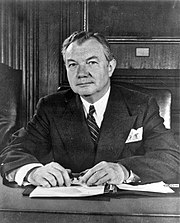
I recently had an opportunity to read the unpublished concurring opinion of Justice Robert H. Jackson in the BROWN v BOARD decision.
The BROWN decision came down in May of '54, and Jackson died in October of that year, so his participation in this decision was in a sense his swan song.
The decision to strike down de jure racial segregation in public education was unanimous, 9-0. Justice Earl Warren's opinion was the only opinion, a fact of some historic significance since it meant there were no dissenting (or even distinct) judicial words around which the sizeable resistance to the implementation of this decision could rally.
It appears to have been precisely for that reason that Jackson was persuaded NOT to publish the concurring decision, NOT to grant resisters an inch.
Jackson's concurrence was different from Warren's opinion in important respects and, yes, one can see why Warren urged him to drop it. Consider this passage:
The white South harbors in historical memory, with deep resentment, the program of Reconstruction and the deep humiliation of carpetbag government imposed by conquest. Whatever other motives were behind these offensive reconstruction measures and whatever their necessity or merit, the North made the Negro their emotional symbol and professed beneficiary, with the natural consequence of identifying him with all that was suffered from his Northern champions. Thus, I am convinced the race problem in the South involves more than mere racial prejudice. It is complicated emotionally with a white war and white politics.
Comments
Post a Comment